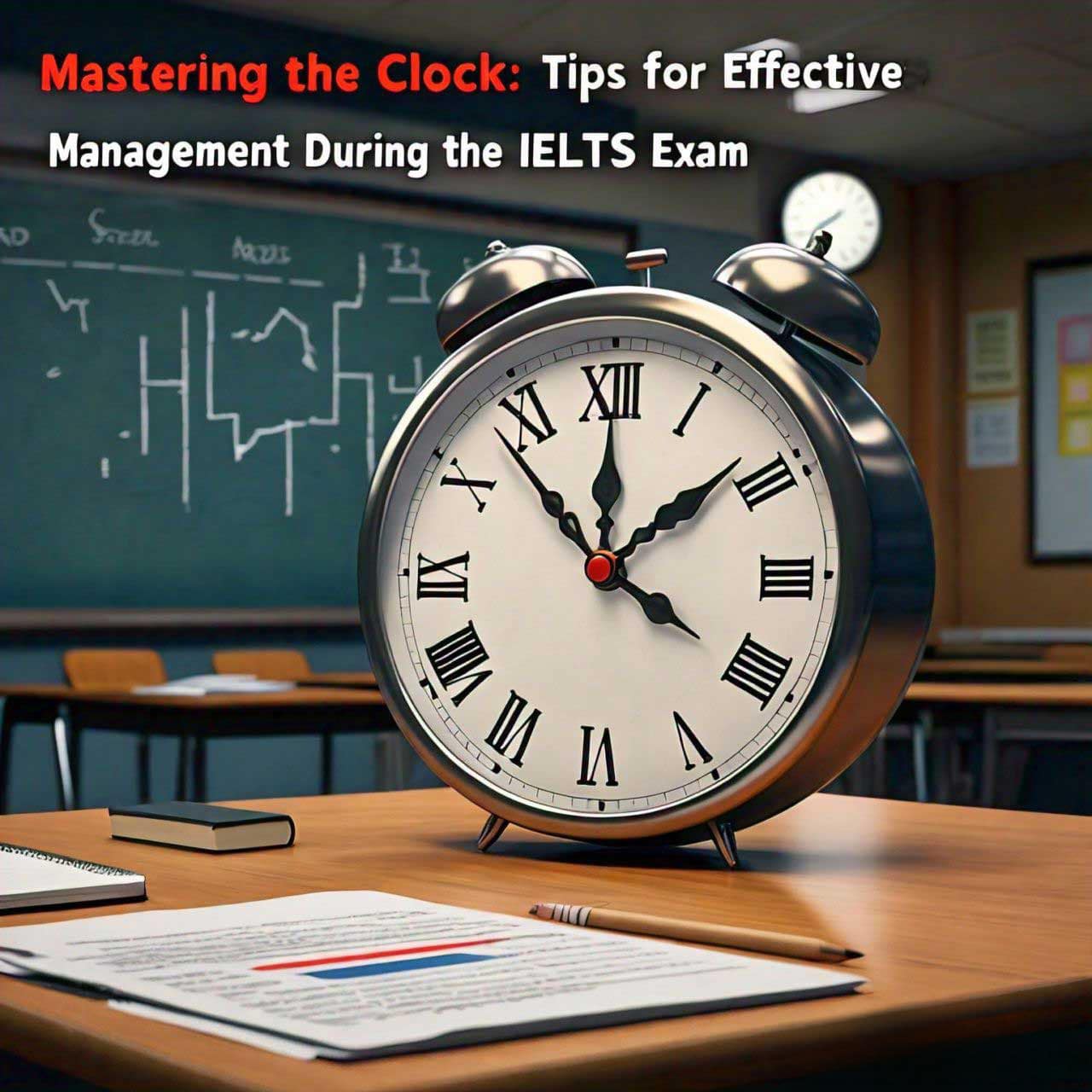The International English Language Testing System (IELTS) exam is a timed assessment that challenges test takers across four key language skills: Listening, Reading, Writing, and Speaking. Effective time management is crucial for success, as it ensures that you can complete all sections of the exam within the allocated time limits. In this blog post, we’ll explore valuable tips and strategies to help you manage your time efficiently and maximize your performance on the IELTS exam.
Table of Contents
1. Familiarize Yourself with the Test Format:
Before the exam day, take the time to familiarize yourself with the format and structure of each section of the IELTS exam. Understand the number of questions, time limits, and question types for each section, so you know what to expect and can plan your time accordingly.
2. Practice Under Timed Conditions:
Practice completing practice tests and exercises under timed conditions to simulate the pressure of the actual exam. This will help you develop a sense of pacing and improve your ability to work efficiently within the given time constraints.
3. Allocate Time Wisely:
Divide your time strategically among the different sections of the exam based on their weightage and complexity. For example, in the Reading section, allocate more time to longer passages and challenging questions, while in the Writing section, allocate sufficient time for planning, writing, and reviewing your essays.
4. Monitor Your Progress:
Keep track of the time remaining for each section of the exam and pace yourself accordingly. Regularly check the clock or timer to ensure that you’re progressing through the exam at a steady pace and that you have enough time to complete all tasks.
5. Skim and Scan:
In the Reading section, practice skimming and scanning techniques to quickly identify relevant information and answer questions efficiently. Skim through passages to get a general idea of their content, and then scan for specific details or keywords to answer questions more effectively.
6. Prioritize Questions:
Prioritize questions based on their difficulty level and point value. Start with easier questions that you can answer quickly and accurately to build momentum and gain confidence. Then, tackle more challenging questions that require deeper comprehension or critical thinking skills.
7. Manage Your Writing Time:
In the Writing section, allocate time for planning, writing, and revising your essays. Spend a few minutes brainstorming ideas, organizing your thoughts, and outlining your essay structure before you start writing. Leave some time at the end to review and edit your essays for clarity, coherence, and grammar.
8. Stay Calm and Focused:
Maintain a calm and focused mindset throughout the exam to avoid feeling overwhelmed or rushed. Take deep breaths, stay positive, and concentrate on one question at a time. Avoid getting stuck on difficult questions and move on to the next question if you’re unsure.
9. Practice Time Management Strategies:
Experiment with different time management strategies during your practice sessions to find what works best for you. Whether it’s setting specific time limits for each section, using timers or alarms to pace yourself, or breaking down tasks into smaller chunks, find a strategy that helps you stay organized and on track.
10. Review and Adjust:
After completing practice tests or exercises, take the time to review your performance and identify areas where you can improve your time management skills. Adjust your study plan and practice strategies accordingly to address any weaknesses and build confidence in your ability to manage your time effectively.
Conclusion:
Effective time management is a critical skill for success on the IELTS exam. By implementing these tips and strategies into your preparation routine, you can develop the confidence and proficiency needed to manage your time efficiently and perform your best on exam day. Remember, practice makes perfect, so dedicate time to practicing time management techniques and honing your skills to ensure a smooth and successful experience on the IELTS exam.


